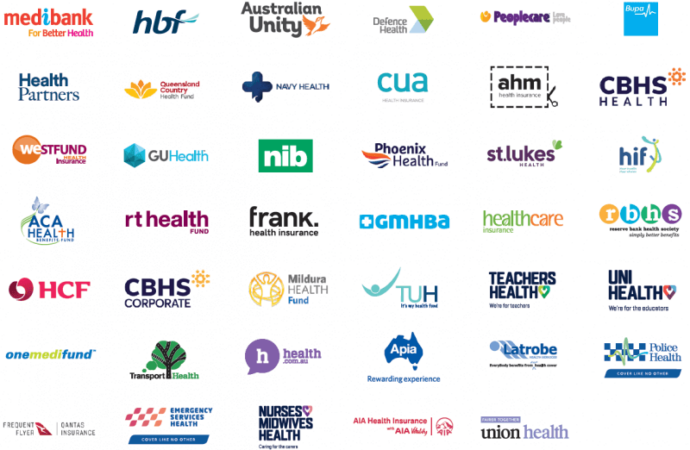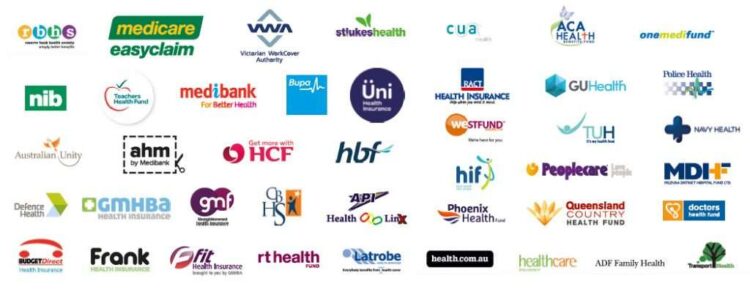
How to get emergency health insurance is a question many people ask, especially when traveling abroad or facing unexpected medical expenses. Emergency health insurance provides crucial financial protection in times of medical crisis, offering peace of mind and the ability to focus on recovery without the added stress of hefty medical bills.
This comprehensive guide will walk you through the process of obtaining emergency health insurance, exploring different plan options, key considerations, and the claims process. We’ll also delve into alternative solutions for covering emergency medical expenses, equipping you with the knowledge to make informed decisions and secure the best coverage for your needs.
Understanding Emergency Health Insurance
Emergency health insurance is a type of coverage designed to provide financial protection in case of unexpected medical emergencies while traveling or living abroad. It offers peace of mind knowing that you have access to necessary medical care without the burden of exorbitant costs.
Types of Medical Emergencies Covered
Emergency health insurance typically covers a wide range of medical emergencies, including:
- Sudden illnesses: This can include conditions like heart attacks, strokes, appendicitis, and severe infections.
- Accidents: Coverage extends to injuries sustained from falls, car accidents, and other unexpected incidents.
- Emergency medical transportation: If you require immediate medical attention, the insurance may cover the cost of ambulance transport or air ambulance services.
- Hospitalization: In case of a serious medical emergency requiring hospitalization, the insurance may cover the costs associated with inpatient care, including room, board, and medical services.
- Emergency surgery: Coverage typically includes the cost of necessary surgical procedures performed in emergency situations.
Situations Where Emergency Health Insurance is Beneficial
Emergency health insurance can be particularly beneficial in various situations:
- Traveling to destinations with limited or inadequate healthcare systems: Some countries have less developed healthcare infrastructure, making it essential to have emergency health insurance to ensure access to quality medical care.
- Engaging in adventurous activities: If you plan on participating in activities like skiing, scuba diving, or trekking, having emergency health insurance can protect you from unexpected medical expenses related to accidents or injuries.
- Living abroad for an extended period: If you’re relocating to another country, emergency health insurance provides a safety net in case of unforeseen medical emergencies.
- Traveling with pre-existing medical conditions: Even if you have a pre-existing medical condition, emergency health insurance can offer coverage for emergencies related to that condition, although specific terms and conditions may apply.
Finding the Right Emergency Health Insurance

Choosing the right emergency health insurance plan is crucial, as it can provide financial protection in unexpected medical emergencies while traveling. Understanding the different plan options and comparing their features is essential to find the best fit for your needs.
Key Factors to Consider When Choosing an Emergency Health Insurance Plan
Choosing the right emergency health insurance plan requires considering several factors to ensure it meets your specific needs and budget. These factors include:
- Coverage Limits: This refers to the maximum amount the insurance company will pay for covered medical expenses. Higher coverage limits offer greater financial protection but usually come with higher premiums.
- Deductibles: The deductible is the amount you pay out-of-pocket before the insurance coverage kicks in. A higher deductible typically means lower premiums, but you’ll have to pay more upfront if you need to use the insurance.
- Premiums: The premium is the monthly or annual cost of the insurance policy. Premiums vary depending on factors such as your age, health, and the level of coverage you choose.
- Exclusions and Limitations: It’s essential to understand what is not covered by the policy. Some plans may exclude pre-existing conditions, certain types of medical treatment, or specific activities.
- Geographic Coverage: Ensure the plan provides coverage in the regions you intend to travel. Some plans offer worldwide coverage, while others may be limited to specific countries or regions.
- Customer Service and Claims Process: Research the insurer’s reputation for customer service and the ease of filing claims. A responsive and efficient claims process is essential in an emergency situation.
Comparison of Emergency Health Insurance Plan Options
Understanding the different plan options and their features is crucial for making an informed decision. Here’s a table outlining the pros and cons of various plan options:
| Plan Option | Pros | Cons |
|---|---|---|
| Basic Emergency Coverage | Lower premiums, covers essential medical expenses. | Limited coverage, may not cover all medical emergencies, higher deductibles. |
| Comprehensive Emergency Coverage | Wider coverage, including medical evacuation and repatriation, lower deductibles. | Higher premiums, may not be necessary for all travelers. |
| Travel Insurance with Emergency Health Coverage | Combined coverage for medical emergencies, trip cancellation, and other travel-related issues. | Higher premiums, may have overlapping coverage with other insurance policies. |
Choosing the Right Plan for You
The best emergency health insurance plan for you will depend on your individual needs and circumstances. Consider your travel plans, budget, and risk tolerance when making your decision. It’s also advisable to compare quotes from multiple insurers to find the most competitive rates.
Tip: Consult with a travel insurance broker or agent to get personalized advice and help you choose the right plan.
Key Considerations Before Purchasing

Before diving into the world of emergency health insurance, it’s crucial to take a step back and consider the essential factors that will influence your decision. Understanding the policy’s terms and conditions, potential limitations, and exclusions will ensure you’re making an informed choice that aligns with your specific needs.
Understanding the Terms and Conditions
The terms and conditions of your emergency health insurance policy are the foundation of your coverage. They Artikel the specific benefits you’re entitled to, the circumstances under which you can claim them, and any limitations or exclusions that apply. Carefully reviewing these terms will help you avoid unpleasant surprises when you need to file a claim.
For example, some policies may have a waiting period before coverage becomes active. Others may have a maximum limit on the amount you can claim for a particular medical expense.
Potential Limitations and Exclusions
Emergency health insurance policies typically have limitations and exclusions that are important to understand. These can range from pre-existing conditions not being covered to specific types of medical procedures or treatments being excluded. It’s essential to review the policy’s fine print to identify any limitations that may affect your coverage.
For instance, some policies may not cover certain medical emergencies like pre-existing conditions or routine checkups.
Questions to Ask Potential Insurers
To ensure you’re getting the most appropriate coverage, it’s wise to ask potential insurers a series of questions before making a decision. This will help you understand the policy’s details and ensure it meets your specific requirements.
- What are the specific medical emergencies covered by the policy?
- What are the policy’s limitations and exclusions?
- Is there a waiting period before coverage becomes active?
- What is the maximum amount you can claim for a particular medical expense?
- What are the policy’s renewal terms and conditions?
- What are the policy’s claim procedures?
- What is the insurer’s reputation for claim processing and customer service?
Filing a Claim

Filing a claim with your emergency health insurance provider is crucial for getting your medical expenses covered. The process usually involves notifying your insurance company about the emergency, providing them with necessary documentation, and submitting a claim form.
Steps Involved in Filing a Claim
The process of filing a claim with your emergency health insurance provider is straightforward. Here are the steps you need to follow:
- Contact Your Insurance Company: After receiving emergency medical treatment, immediately notify your insurance company about the incident. This step is important as it initiates the claims process and allows your insurer to guide you through the necessary procedures.
- Gather Required Documentation: Your insurance company will likely request specific documents to support your claim. These may include:
- Medical bills and receipts
- Emergency room records
- Doctor’s notes
- Proof of identification
- Complete the Claim Form: Your insurance company will provide you with a claim form that needs to be filled out accurately and completely. This form typically requires information about the emergency, the medical services received, and your contact details.
- Submit Your Claim: Once you have gathered all the necessary documentation and completed the claim form, submit it to your insurance company via mail, fax, or online portal. Make sure to retain copies of all submitted documents for your records.
- Follow Up: After submitting your claim, follow up with your insurance company to track its progress. You can inquire about the status of your claim and any required information or documentation.
Tips for Ensuring a Smooth Claim Process, How to get emergency health insurance
Here are some tips to ensure a smooth and efficient claim submission:
- Read Your Policy Carefully: Understand the coverage limits, exclusions, and procedures Artikeld in your policy. This will help you avoid any surprises or delays during the claims process.
- Keep Detailed Records: Maintain records of all medical expenses, including dates, providers, and services received. This will help you accurately complete the claim form and support your claim.
- Submit Your Claim Promptly: Filing your claim promptly after the emergency is crucial to avoid any potential delays or complications.
- Be Patient: The claims process can take some time, so be patient and communicate with your insurance company if you have any questions or concerns.
Alternative Solutions
Emergency health insurance isn’t the only way to protect yourself from unexpected medical expenses. Other options can provide coverage for travel-related emergencies or even everyday medical needs. Let’s explore some of these alternatives and compare them to emergency health insurance.
Travel Insurance
Travel insurance is a common option for those traveling abroad, offering coverage for various unexpected events, including medical emergencies. Travel insurance can be a valuable addition to your existing health insurance, especially if your primary plan doesn’t cover international medical expenses.
- Coverage: Travel insurance typically includes medical expenses, emergency evacuation, and repatriation, depending on the policy. Some policies may also cover lost luggage, trip cancellation, and other travel-related issues.
- Cost: The cost of travel insurance varies depending on the destination, length of stay, and coverage level. You can find policies starting from around $50, but comprehensive plans can cost several hundred dollars.
- Benefits: Travel insurance provides peace of mind knowing you have coverage for medical emergencies while traveling abroad. It can also help you avoid significant out-of-pocket expenses if you require medical treatment.
- Drawbacks: Travel insurance is typically limited to travel-related events and may not cover all medical expenses. Additionally, pre-existing conditions may not be covered, and there might be waiting periods for certain benefits.
Credit Cards with Medical Coverage
Some credit cards offer secondary medical coverage as a perk. This coverage acts as a supplement to your existing health insurance, providing additional protection in case of unexpected medical expenses.
- Coverage: Credit card medical coverage usually covers emergency medical expenses, including hospitalization, surgery, and ambulance transportation. However, coverage limits and exclusions may apply.
- Cost: Credit card medical coverage is typically included as a benefit of the card, so there is no additional cost. However, the coverage may be limited, and you may need to pay a deductible or co-pay.
- Benefits: Credit card medical coverage provides an extra layer of protection for unexpected medical expenses. It can be particularly helpful if your existing health insurance has a high deductible or limited coverage.
- Drawbacks: Credit card medical coverage is typically secondary, meaning it only kicks in after your primary health insurance has paid its share. Coverage may be limited, and you may need to pay a deductible or co-pay.
Decision-Making Flowchart
| Question | Answer | Next Step |
|---|---|---|
| Are you traveling outside of your home country? | Yes | Consider travel insurance. |
| No | Proceed to the next question. | |
| Do you have existing health insurance? | Yes | Assess your current coverage and consider supplementing with a credit card with medical coverage. |
| No | Consider emergency health insurance or a credit card with medical coverage. |
This flowchart provides a simple guide to help you choose the best option based on your individual needs. Remember to carefully consider your budget, coverage needs, and the terms and conditions of each option before making a decision.
Ultimate Conclusion: How To Get Emergency Health Insurance
Navigating the world of emergency health insurance can seem daunting, but with a clear understanding of your needs, available options, and the steps involved, finding the right coverage is achievable. Remember to carefully evaluate your requirements, compare different plans, and seek clarification on any terms or conditions that are unclear. By taking a proactive approach, you can secure the financial protection you need and travel with peace of mind, knowing that you’re prepared for any unforeseen medical emergencies.
FAQ Resource
What is the difference between emergency health insurance and travel insurance?
Emergency health insurance specifically covers medical emergencies, while travel insurance often includes broader coverage, such as trip cancellation, baggage loss, and emergency medical evacuation.
Can I purchase emergency health insurance online?
Yes, many insurance providers offer online platforms for purchasing emergency health insurance. You can compare plans, get quotes, and purchase policies online, making it a convenient option.
What are the typical coverage limits for emergency health insurance?
Coverage limits vary depending on the plan, but they typically range from a few thousand dollars to tens of thousands of dollars. It’s crucial to choose a plan with a limit that aligns with your potential medical expenses.
How long does it take to process a claim for emergency health insurance?
The claim processing time can vary, but most insurers aim to process claims within a reasonable timeframe, typically within a few days or weeks. However, it’s essential to follow the insurer’s instructions carefully and provide all necessary documentation.





